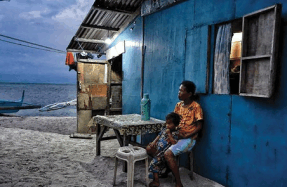OCCUPATION HAZARDS


A YEAR AGO, the Narendra Modi government announced that it would repeal Article 370 of the Constitution, which gave symbolic autonomy to the state of Jammu and Kashmir. The home minister, Amit Shah, in his address to parliament, made clear that when he spoke of Jammu and Kashmir, “I include Pakistan-Occupied Kashmir and Aksai Chin”—an area administered by China, on the eastern side of Jammu and Kashmir. When a parliamentarian tried to ask a question, Shah shouted him down, saying “Jan de denge iske liye!”—We are ready to give our lives for this [land]! Shah was later quoted as saying that Prime Minister Narendra Modi had “shown Pakistan its place by abrogating Article 370.”
However, Shah and the rest of the Modi government seemed to have forgotten about an important stakeholder in the matter—China. The day after the announcement, the Chinese foreign ministry put out a statement calling the Indian government’s decision “unilateral” and objecting that it “undermined China’s territorial sovereignty.” India’s minister of external affairs, Subrahmanyam Jaishankar, rushed to Beijing to meet his counterpart, Wang Yi, and tried to assure him that the move was not going to affect the status quo between the two countries on territorial and border issues. Regardless, as a top Chinese intellectual associated with the government wrote recently, Wang conveyed to Jaishankar China’s strong opposition.
In November, India released a new political map showing the two union territories newly created by the abrogation of Article 370—Jammu and Kashmir, and Ladakh. It included as Indian territory Aksai Chin, and Gilgit and Baltistan, governed by Pakistan since Independence. Unsurprisingly, China perceived this as cartographic aggression.
Since August, China has thrice sought a discussion on the Kashmir dispute in the United Nations Security Council, but in vain. India’s soft power and old store of international goodwill may have protected the country from backlash on the global stage, but it could not save it from Chinese aggression.
On 15 June, in the deadliest clash on the Line of Actual Control in the last four decades, the People’s Liberation Army of China killed twenty Indian soldiers in a clash in the Galwan valley—a region in eastern Ladakh. The number of casualties on the Chinese side remains unconfirmed. Several commentators have asserted that China has unilaterally altered the LAC, and seized territory by force. The Indian government’s statements on the situation have been ambiguous, and negotiations are still underway to de-escalate tensions.
A year since the abrogation of Article 370, what the government and its cheerleaders claimed was a “masterstroke” and a “gamechanger” looks more and more like a historic blunder.
The Modi government’s obsession with its domestic ideological goals rendered it blind to the threat posed by China. Beyond that, despite the government’s best efforts, the repression and violence meted out by the state to ordinary Kashmiri citizens gained international attention. The destruction of Kashmir’s local political system, and the arrest of virtually its entire political class, makes the region look more like an open-air prison than ever before. The government attributes the current absence of large-scale violence in Kashmir to the revocation of Article 370, when the real reasons for this are massive deployment of military and paramilitary forces, and a complete suspension of civil liberties. There are already signs on the ground of newer forms of militancy and violence rising.
CHINA’S PRIMARY CONCERNS
You’re reading a preview, subscribe to read more.
Start your free 30 days



